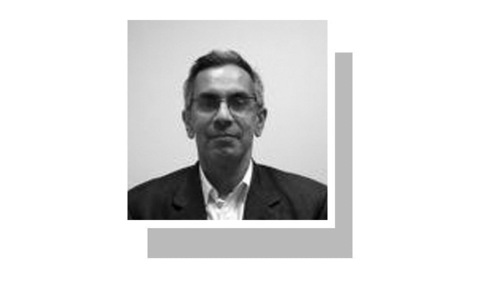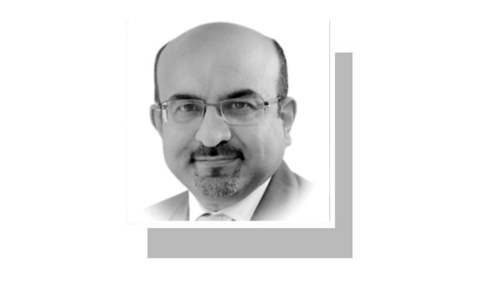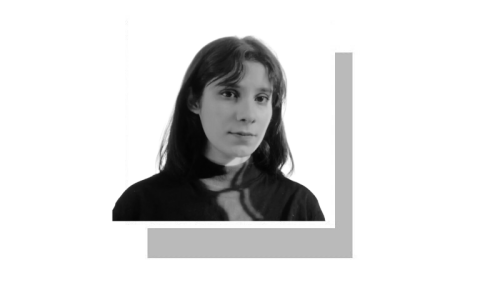Pakistan’s inflation rate stayed above target at 27.4 per cent in August, data showed on Friday, as reforms set out as conditions for an IMF loan complicate the task of keeping price pressures and declines in its rupee currency in check.
According to data released by the Pakistan Bureau of Statistics (PBS), food inflation remained elevated at 38.5pc year-on-year.
Economic stabilisation is a top challenge for the country as it embarks on a narrow recovery path after a $3 billion IMF bailout averted a sovereign debt default.
Reforms linked to the bailout, including an easing of import restrictions and a demand that subsidies be removed, have already fuelled annual inflation. Interest rates have also risen, and the rupee hit all-time lows. Last month the currency fell 6.2pc.
The August data from PBS showed a slight easing from July’s 28.3pc inflation rate, but food inflation remained elevated at 38.5pc with the year-on-year increase in non-perishable food items at 42.79pc and 12.69pc for perishable food items.
Annual consumer inflation in urban and rural areas increased to 25pc and 30.9pc year-on-year, respectively.
Meanwhile, the highest year-on-year increase was recorded in the categories of alcoholic beverages and tobacco (97.51pc), recreation and culture (61.38pc), non-perishable food items and furnishing and household equipment maintenance (41.71pc).
Index-wise increase in inflation YoY (in descending order)
- Alcoholic beverages and tobacco: 97.51pc
- Recreation and culture: 61.38pc
- Non-perishable food items: 42.79pc
- Furnishing and household equipment maintenance: 41.71pc
- Miscellaneous goods and services: 40.84pc
- Restaurants and hotels: 34.06pc
- Transport: 22.96pc
- Health: 22.55pc
- Clothing and footwear: 18.46pc
- Perishable food items: 12.69pc
- Education: 10.47pc
- Communication: 7.03pc
- Housing and utilities: 6.25pc
Meanwhile, in the food group, items whose prices increased the most in urban areas for August compared to last year were:
- Cigarettes: 117.48pc
- Wheat flour: 99.68pc
- Tea: 94.5pc
- Condiments and spices: 75.14pc
- Sugar: 70.64pc
- Chicken: 67.56pc
- Rice: 66.82pc
- Wheat: 64.17pc
- Potatoes: 59.71pc
- Wheat Products: 59.03pc
- Beans: 50.36pc
- Dry fruits: 48.8pc
- Beverages: 46.43pc
- Milk powder: 44.39pc
- Pulse Mash: 32.4pc
- Milk products: 31.49pc
- Fresh milk: 29.25pc
- Pulse Moong: 27.59pc
- Tomatoes: 23.17pc
- Whole gram: 16.56pc
- Cooking oil: 3.45pc
- Pulse Gram: 2.35pc
The year-on-year increase for non-food items was:
- Gas charges: 62.82pc
- Household equipment: 40.3pc
- Motor vehicle accessories: 34.67pc
- Solid fuel: 33.27pc
- Newspapers: 32.77pc
- Personal grooming services: 31.32pc
- Furniture and furnishing: 28.2pc
- Mechanical services: 27.68pc
- Accommodation services: 27.18pc
- Construction input items: 26.55pc
- Motor fuel: 21.02pc
- Dental services: 10.9pc
- Postal services: 9.13pc
- House rent: 5.25pc
- Liquified hydrocarbons: 3.69pc
Authorities raised petrol and diesel prices to record highs on Friday. The worsening economic conditions, along with rising political tensions, have triggered sporadic protests.
The Jamaat-i-Islami has called for a countrywide strike on Saturday in response to higher power tariffs. Ordinary citizens say they are struggling to make ends meet.
Bank employee Waseem Ahmed, speaking at a petrol station in Islamabad, said the middle classes were being crushed.
“More than 60 to 70pc of my salary is spent on bills and petrol. Where will we get basic staples from? This is why people are contemplating suicide,” he told Reuters.
Mohammed Sohail, CEO of Topline Securities, said August’s inflation reading was in line with expectations.
But the falling rupee and rising energy prices meant that “we may not see a big decline in inflation year on year as was expected earlier”, he added.
He was referring to government projections that inflation will fall to 22pc by the end of the fiscal year that runs to June 31 while analysts had predicted inflation to range from 26pc to 28pc.
The State Bank said in its last monetary policy statement in July — when it held benchmark interest rates likewise at 22pc — that it expected inflation to remain on a downward path over the following 12 months.











































